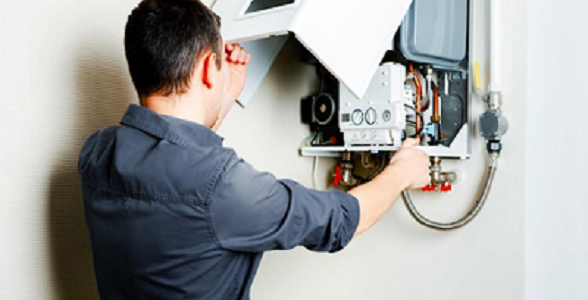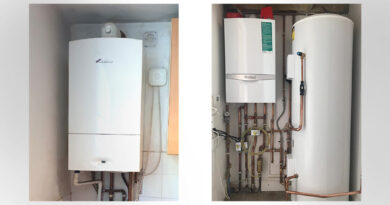How to Prepare Your Home for Unexpected Plumbing Emergencies: Essential Tips from Expert Plumbers
In the world of homeownership, plumbing emergencies may be one of the maximum daunting and annoying conditions. Whether it’s far a burst pipe inside the center of a wintry climate at night time or a surprising sewage backup, those unexpected problems can cause large harm and strain. The key to mitigating the effect of such emergencies lies in steerage. By taking proactive steps, you can protect your house, reduce damage, and make certain a fast decision. In this whole manual, we’ll delve into realistic strategies and professional recommendations from emergency plumbers on the way to putting together your own home for sudden plumbing issues.
-
Understand the Common Plumbing Emergencies
Before diving into schooling techniques, it’s critical to make yourself acquainted with the types of plumbing emergencies that might stand up. This know-how will help you understand what to put together and the way to reply efficaciously.
- Burst Pipes: Often due to freezing temperatures or excessive water pressure, burst pipes can result in extensive water harm if no longer addressed fast.
- Clogged Drains: Severe clogs, mainly in essential sewer strains, can cause backups and overflows.
- Leaky Faucets and Fixtures: While they’ll appear minor, continual leaks can cause water harm and mold boom.
- Water Heater Failures: A malfunctioning water heater can result in a lack of hot water or maybe leaks.
- Sewer Line Issues: Problems with sewer strains can cause foul odors and backups in your home.
-
Know the Location of Your Main Water Shut-Off Valve
One of the most important steps in getting ready for a plumbing emergency is understanding where your most important water close-off valve is placed. This valve controls the drift of water into your private home, and closing it off can prevent massive damage in the event of a notable leak or burst pipe.
- Locate the Valve: Typically positioned in the basement, move slowly area, or on the out of doors of your house, the valve is generally close to where the water line enters your home.
- Test the Valve: Regularly take a look at the valve to make certain it turns without problem and successfully shuts off the water delivery.
- Label It Clearly: Consider labeling the valve with a visible signal just so everybody in your circle of relatives can speedy perceive and carry out it if vital.
-
Inspect and Maintain Your Plumbing System Regularly
Regular preservation is fundamental to preventing plumbing emergencies. Routine inspections can assist in identifying capability issues before they make bigger into excessive problems.
- Check for Leaks: Regularly inspect underneath sinks, spherical toilets, and close-to-water warmers for signs and signs and symptoms of leaks.
- Test Drains and Toilets: Ensure that drains are flowing well and that bathrooms flush successfully.
- Inspect Pipes: Look for signs of corrosion or harm on uncovered pipes, in particular in areas vulnerable to freezing.
Maintain Water Heater: Flush your water heater periodically to remove sediment buildup, and take a look at it for any symptoms of leaks or corrosion.
-
Insulate Pipes to Prevent Freezing
In less heat climates, freezing temperatures can motivate pipes to freeze and burst. Proper insulation is important to save you these issues.
- Use Pipe Insulation: Apply foam or fiberglass pipe insulation to exposed pipes, especially those in unheated areas at the side of basements and crawl regions.
- Seal Gaps: Seal any gaps in spherical pipes wherein bloodless air has to enter, at the side of around home home windows, doorways, and vents.
- Keep Interior Doors Open: Allow heat air to flow into regions with plumbing pipes by the use of keeping indoor doorways open in the course of extreme cold.
-
Install a Water Leak Detection System
Water leak detection structures can provide early warnings of potential troubles, allowing you to deal with troubles earlier than they become emergencies.
- Choose a System: Consider putting in a leak detection device with sensors located in key regions that incorporate under sinks, near water heaters, and round washing machines.
- Connect to a Smart System: Some superior systems can send alerts for your cellphone, enabling you to do so even even as you’re no longer at home.
-
Keep Emergency Supplies on Hand
Having important system and materials effects to be had could make a sizeable distinction for the duration of a plumbing emergency.
- Basic Tools: Keep a wrench, pliers, and a pipe cutter on hand for emergency renovation.
- Plumbing Supplies: Store gadgets which include plumber’s tape, pipe sealant, and pipe repair kits.
- Buckets and Towels: In the occasion of a leak, having buckets and towels available can assist in manipulating water till professional help arrives.
-
Establish a Relationship with a Reliable Emergency Plumber
Having a trusted emergency plumber on pace dial may make a large difference at the same time as you want pressing assistance.
- Research and Choose Wisely: Look for decent plumbers with effective reviews and experience in coping with emergencies.
- Verify Credentials: Ensure that the plumber is licensed, insured, and certified.
- Discuss Availability: Confirm that the plumber offers 24/7 emergency services and has a short reaction time.
-
Know When to Call the Professionals
While a few minor plumbing troubles may be handled with DIY strategies, there are conditions in which expert intervention is necessary.
- Major Leaks or Burst Pipes: Call a plumber at once in case you enjoy big leaks or burst pipes that you can not manage.
- Sewer Line Issues: Professional assistance is essential for addressing complex sewer line issues.
- Water Heater Failures: A malfunctioning water heater can also require specialized restoration or alternative.
Conclusion
Preparing your private home for sudden plumbing emergencies involves a combination of knowledge, maintenance, and proactive measures. By understanding common plumbing problems, knowing the location of your main water shut-off valve, and maintaining your plumbing system, you can significantly reduce the risk of extensive damage. Additionally, insulating pipes, installing leak detection systems, and keeping emergency supplies on hand will further safeguard your home. Educating your household and establishing a relationship with a reliable plumber in Florida ensures that you are well-prepared to handle any plumbing disaster that may arise. With these tips, you can approach plumbing emergencies with confidence and peace of mind, knowing you are equipped to tackle any issues that come your way.




